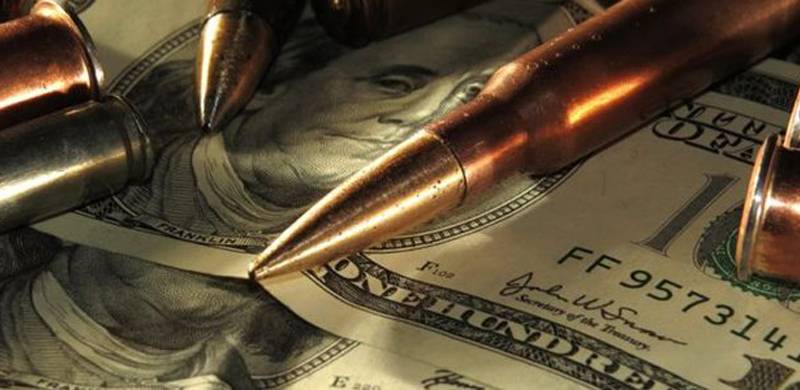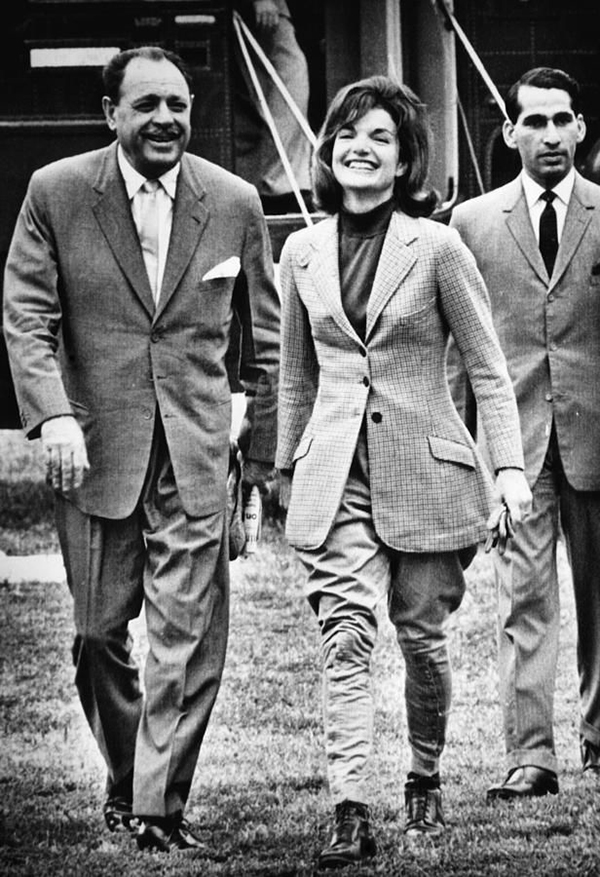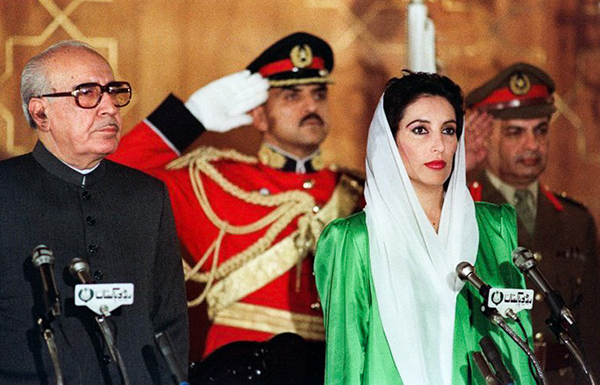
Muhammad Ziauddin argues that Pakistan started its long, tiring journey into economic dependence during Ayub's era and with 40 years of constant war, without improving our resource and wealth generation capabilities, it was impossible for the successive governments to fix the economic model.
Pakistan has been in a state of war since about the year when the defunct Soviet Union walked into neighbouring Afghanistan. This was late 1979. It is now 2019. Nearly 40 years. All these years we have been in a state of war. The first Afghan war, the second Afghan war, the war against TTP, the Rah-i-Raast, the Zarb-i-Azb and Ruddul Fasaad, cleaning of South Waziristan and North Waziristan. And we all know wars are not fought on empty pockets.
Afghan wars since 1979
We fought both Afghan wars with the billions received from the so-called free-world including from China and oil rich Muslim countries.
During the first Afghan war we received as much as $50 unencumbered billions as per rule of thumb estimates. But when Zia died in 1988 there was nothing on the ground to show where these billions had gone. In fact, the late Dr. Mehbubul Haq who was the finance minister in the interim government of President Ghulam Ishaq Khan had to rush to the IMF for a paltry emergency assistance of about $150 million.
https://www.youtube.com/watch?v=uOpQc-ckGZc&t=21s
But the Fund said the agreement would be signed with the incoming government of prime minister Benazir Bhutto after it had signed on the dotted lines of the conditionalities.
Cart before the horse: Was it really Zia?
But perhaps I am putting the cart before the horse. Let us begin from the beginning. It was during the tenure of the so-called De Gaul of Pakistan, Field Marshal Ayub Khan that decided to finance its defence budgets with the military assistance being received from the US under the CENTO and SEATO defence pacts. This aid came in the shape of tanks and fighter planes of Second World War vantage; even a number of cantonments were built with this aid.
And Ayub funded the civilian budget with the proceeds from selling wheat received from the US under PL480. This led to almost the total destruction of our wheat production capacity; resultantly from granary of the subcontinent we became net importers of wheat.
https://www.youtube.com/watch?v=akknWKsZHAM
Ayub's regime behind anti-tax culture
This was the beginning of the end as far as any attempts on our part were concerned to improve our fiscal capacities. Ayub did not let legitimate tax culture to develop in the country as he needed the support of the landed aristocracy and big business created deliberately through licence and permit culture.
Friends and politically powerful families used to be obliged with free distribution of licences and permits. In many instances industries set up in the public sector by the PIDC were handed over to political favourites for peanuts.

Banks were allowed to provide 70% equity for 30% investment, mostly in textile and chemical industries. The sponsors used to over-invoice the imported machinery taking back almost the entire 30% of their equity and also keeping the plunder in foreign banks. Next after launching the unit they would under-invoice their exports making a killing which too would be kept in foreign banks. Money laundering was started way back during the Ayub regime.
Shenanigans of rent-seekers: Licence and permit system
Not only that. They would float shares of their units on the stock exchange, say at the rate of Rs10 per share; then they would manipulate the market to depress the share price to half of the original and buy them back all and keep them, almost 99% in the family.
And since they were not entrepreneurs but businessmen created out of licence and permit system they would not spread their investments, would not reinvest in upgrading their enterprises with new machinery and innovation. And they would, instead of producing quality goods would instead pilfer utilities like water, electricity and gas, besides taxes due to them to keep increasing their margins.
https://www.youtube.com/watch?v=cezupohP4WI&t=7s
The interregnum provided by the nationalism spree is another story deserving a separate treatment. But here again there is enough evidence that ZA Bhutto was sent to gallows on trumped up charges because of among other things he was all but ready to implement radical taxation reforms with tax on agriculture income as its flagship.
Bureaucratization of economy under Zia on Ghulam Ishaq's watch
Come Zia regime with Ghulam Ishaq holding the finance and economic portfolio. He went in the reverse direction by trying to denationalise the units that Bhutto had nationalised but ending up bureaucratising the economy.

He too would not touch taxation but for running the government would borrow from nationalised banks at rates less than 06 per cent while the banks were mobilising resources at 10-15 per cent.
This was the surest way to destroy the country’s banking system and keep a legitimate tax culture from taking roots in the country.
Entry into free market economy and the sudden rupture
And it was about this time that the term users’ charges was introduced in our social sector litany. This was the beginning of the end of the social welfare model of economy the socialist oriented first PPP government had tried to follow. We suddenly entered the luxury of free market economy.
And by this time the infamous multilateral aid agency, the Paris Club had started dictating our annual budgets. Successive annual budgets were being framed on the basis of the anticipated project and non-project aid for year.
https://www.youtube.com/watch?v=xgfLVt3MlL8
Once when the then planning minister Dr Mehbubul Haq was asked about consistently being a client of the Paris Club, his answer was revealing. He said the foreign aid is in fact an expression of confidence of donors in our economic health!
What the then economic managers had refused to see was that out of each dollar aid, 99 cents would go back to the donors in the shape of consultation fee, imports from donors dictated by transfer pricing system, shipping charges etc. And the residual cent would be pocketed by the civil-military bureaucracy.
It's been a tiring journey into dependence
This is a short, sharp recall of how Pakistan gradually turned into an aid dependent country losing its political and economic sovereignty to the donors and obliged to do their bidding even if it meant doing something totally opposed to national interest.
And this is also a short and sharp recall of how since the Ayub’s days the country’s official economic managers framed fiscal policies in a way as to make it impossible for tax culture to take hold in the country.
The original question: Can a country fight wars for nearly 40 years on empty pockets?
Now let us go back to the original question.
Can a country fight wars for nearly 40 years on empty pockets—that is, while totally dependent on aid with strings attached and country’s own ability to raise its own resources completely missing?
https://www.youtube.com/watch?v=OvuX5NpXX4w
The answer is too obvious. So, how do we fund these wars, then? Again, obviously by borrowing left and right without bothering about what would happen when the time came for repayment. Well, we borrowed more to pay back the past loans and also keep using the residual to fund the wars.
Imports increase but not tax collection. Here's why:
In the second Benazir government at the end of six months of its first year it was realised that revenues were not picking up. The government decided to enhance regulatory duties on a number of import items. However, at the end of the year it was found out that while the imports had gone up steeply, there was no improvement in the collection. The then PM was asked why it was so, at a press conference. She said she would also like to know the reasons and asked three journalists (me from Dawn, Farhan Bokhari of the Financial Times and Absar Alam who was with The Nation at that time) to visit the CBR chief and try to find out the reasons from him.
https://www.youtube.com/watch?v=mJRPo9GXa4A
The CBR Chairman was a charming person, but he kept delaying an answer on one pretext or the other for almost a couple of months. Finally, when he saw we had no intention of giving up, he said: Look, the reason why imports have gone up steeply without showing any improvement in the collection is because our strategic imports do not carry any duties!!!
Elephant in the room
The PTI government would do well to see the elephant in the room and stop criticising the opposition and vice versa for having been instrumental in continuously raising our debt.
One can see why the debt increased with the pace with which it did since from 2005 onwards. Between 2005 and today we have been fighting wars of survival, existential wars during which we have lost some 70,000 Pakistanis including thousands of security personnel and in monetary terms may have lost as much as the debt that had accumulated since 2005.
Pakistan has been in a state of war since about the year when the defunct Soviet Union walked into neighbouring Afghanistan. This was late 1979. It is now 2019. Nearly 40 years. All these years we have been in a state of war. The first Afghan war, the second Afghan war, the war against TTP, the Rah-i-Raast, the Zarb-i-Azb and Ruddul Fasaad, cleaning of South Waziristan and North Waziristan. And we all know wars are not fought on empty pockets.
Afghan wars since 1979
We fought both Afghan wars with the billions received from the so-called free-world including from China and oil rich Muslim countries.
During the first Afghan war we received as much as $50 unencumbered billions as per rule of thumb estimates. But when Zia died in 1988 there was nothing on the ground to show where these billions had gone. In fact, the late Dr. Mehbubul Haq who was the finance minister in the interim government of President Ghulam Ishaq Khan had to rush to the IMF for a paltry emergency assistance of about $150 million.
https://www.youtube.com/watch?v=uOpQc-ckGZc&t=21s
But the Fund said the agreement would be signed with the incoming government of prime minister Benazir Bhutto after it had signed on the dotted lines of the conditionalities.
Cart before the horse: Was it really Zia?
But perhaps I am putting the cart before the horse. Let us begin from the beginning. It was during the tenure of the so-called De Gaul of Pakistan, Field Marshal Ayub Khan that decided to finance its defence budgets with the military assistance being received from the US under the CENTO and SEATO defence pacts. This aid came in the shape of tanks and fighter planes of Second World War vantage; even a number of cantonments were built with this aid.
And Ayub funded the civilian budget with the proceeds from selling wheat received from the US under PL480. This led to almost the total destruction of our wheat production capacity; resultantly from granary of the subcontinent we became net importers of wheat.
https://www.youtube.com/watch?v=akknWKsZHAM
Ayub's regime behind anti-tax culture
This was the beginning of the end as far as any attempts on our part were concerned to improve our fiscal capacities. Ayub did not let legitimate tax culture to develop in the country as he needed the support of the landed aristocracy and big business created deliberately through licence and permit culture.
Friends and politically powerful families used to be obliged with free distribution of licences and permits. In many instances industries set up in the public sector by the PIDC were handed over to political favourites for peanuts.

President Ayub Khan (left), of Pakistan, and Jacqueline Kennedy (center), returning from horseback riding. September 25, 1962. | Picture courtesy: Diane Mack
Banks were allowed to provide 70% equity for 30% investment, mostly in textile and chemical industries. The sponsors used to over-invoice the imported machinery taking back almost the entire 30% of their equity and also keeping the plunder in foreign banks. Next after launching the unit they would under-invoice their exports making a killing which too would be kept in foreign banks. Money laundering was started way back during the Ayub regime.
Shenanigans of rent-seekers: Licence and permit system
Not only that. They would float shares of their units on the stock exchange, say at the rate of Rs10 per share; then they would manipulate the market to depress the share price to half of the original and buy them back all and keep them, almost 99% in the family.
And since they were not entrepreneurs but businessmen created out of licence and permit system they would not spread their investments, would not reinvest in upgrading their enterprises with new machinery and innovation. And they would, instead of producing quality goods would instead pilfer utilities like water, electricity and gas, besides taxes due to them to keep increasing their margins.
https://www.youtube.com/watch?v=cezupohP4WI&t=7s
The interregnum provided by the nationalism spree is another story deserving a separate treatment. But here again there is enough evidence that ZA Bhutto was sent to gallows on trumped up charges because of among other things he was all but ready to implement radical taxation reforms with tax on agriculture income as its flagship.
Bureaucratization of economy under Zia on Ghulam Ishaq's watch
Come Zia regime with Ghulam Ishaq holding the finance and economic portfolio. He went in the reverse direction by trying to denationalise the units that Bhutto had nationalised but ending up bureaucratising the economy.

Benazir Bhutto takes oath, 1988
He too would not touch taxation but for running the government would borrow from nationalised banks at rates less than 06 per cent while the banks were mobilising resources at 10-15 per cent.
This was the surest way to destroy the country’s banking system and keep a legitimate tax culture from taking roots in the country.
Entry into free market economy and the sudden rupture
And it was about this time that the term users’ charges was introduced in our social sector litany. This was the beginning of the end of the social welfare model of economy the socialist oriented first PPP government had tried to follow. We suddenly entered the luxury of free market economy.
And by this time the infamous multilateral aid agency, the Paris Club had started dictating our annual budgets. Successive annual budgets were being framed on the basis of the anticipated project and non-project aid for year.
https://www.youtube.com/watch?v=xgfLVt3MlL8
Once when the then planning minister Dr Mehbubul Haq was asked about consistently being a client of the Paris Club, his answer was revealing. He said the foreign aid is in fact an expression of confidence of donors in our economic health!
What the then economic managers had refused to see was that out of each dollar aid, 99 cents would go back to the donors in the shape of consultation fee, imports from donors dictated by transfer pricing system, shipping charges etc. And the residual cent would be pocketed by the civil-military bureaucracy.
It's been a tiring journey into dependence
This is a short, sharp recall of how Pakistan gradually turned into an aid dependent country losing its political and economic sovereignty to the donors and obliged to do their bidding even if it meant doing something totally opposed to national interest.
And this is also a short and sharp recall of how since the Ayub’s days the country’s official economic managers framed fiscal policies in a way as to make it impossible for tax culture to take hold in the country.
The original question: Can a country fight wars for nearly 40 years on empty pockets?
Now let us go back to the original question.
Can a country fight wars for nearly 40 years on empty pockets—that is, while totally dependent on aid with strings attached and country’s own ability to raise its own resources completely missing?
https://www.youtube.com/watch?v=OvuX5NpXX4w
The answer is too obvious. So, how do we fund these wars, then? Again, obviously by borrowing left and right without bothering about what would happen when the time came for repayment. Well, we borrowed more to pay back the past loans and also keep using the residual to fund the wars.
Imports increase but not tax collection. Here's why:
In the second Benazir government at the end of six months of its first year it was realised that revenues were not picking up. The government decided to enhance regulatory duties on a number of import items. However, at the end of the year it was found out that while the imports had gone up steeply, there was no improvement in the collection. The then PM was asked why it was so, at a press conference. She said she would also like to know the reasons and asked three journalists (me from Dawn, Farhan Bokhari of the Financial Times and Absar Alam who was with The Nation at that time) to visit the CBR chief and try to find out the reasons from him.
https://www.youtube.com/watch?v=mJRPo9GXa4A
The CBR Chairman was a charming person, but he kept delaying an answer on one pretext or the other for almost a couple of months. Finally, when he saw we had no intention of giving up, he said: Look, the reason why imports have gone up steeply without showing any improvement in the collection is because our strategic imports do not carry any duties!!!
Elephant in the room
The PTI government would do well to see the elephant in the room and stop criticising the opposition and vice versa for having been instrumental in continuously raising our debt.
One can see why the debt increased with the pace with which it did since from 2005 onwards. Between 2005 and today we have been fighting wars of survival, existential wars during which we have lost some 70,000 Pakistanis including thousands of security personnel and in monetary terms may have lost as much as the debt that had accumulated since 2005.
